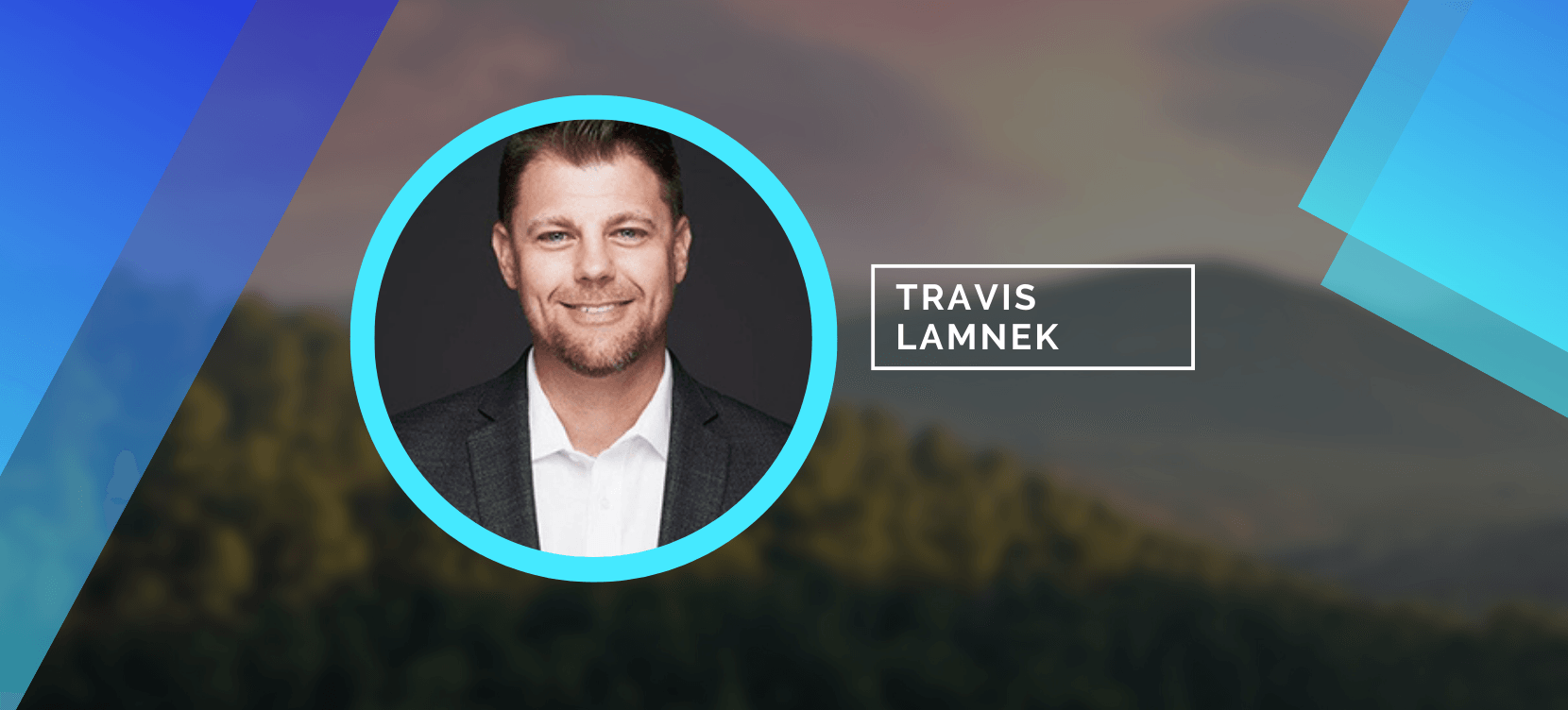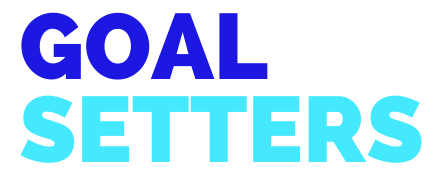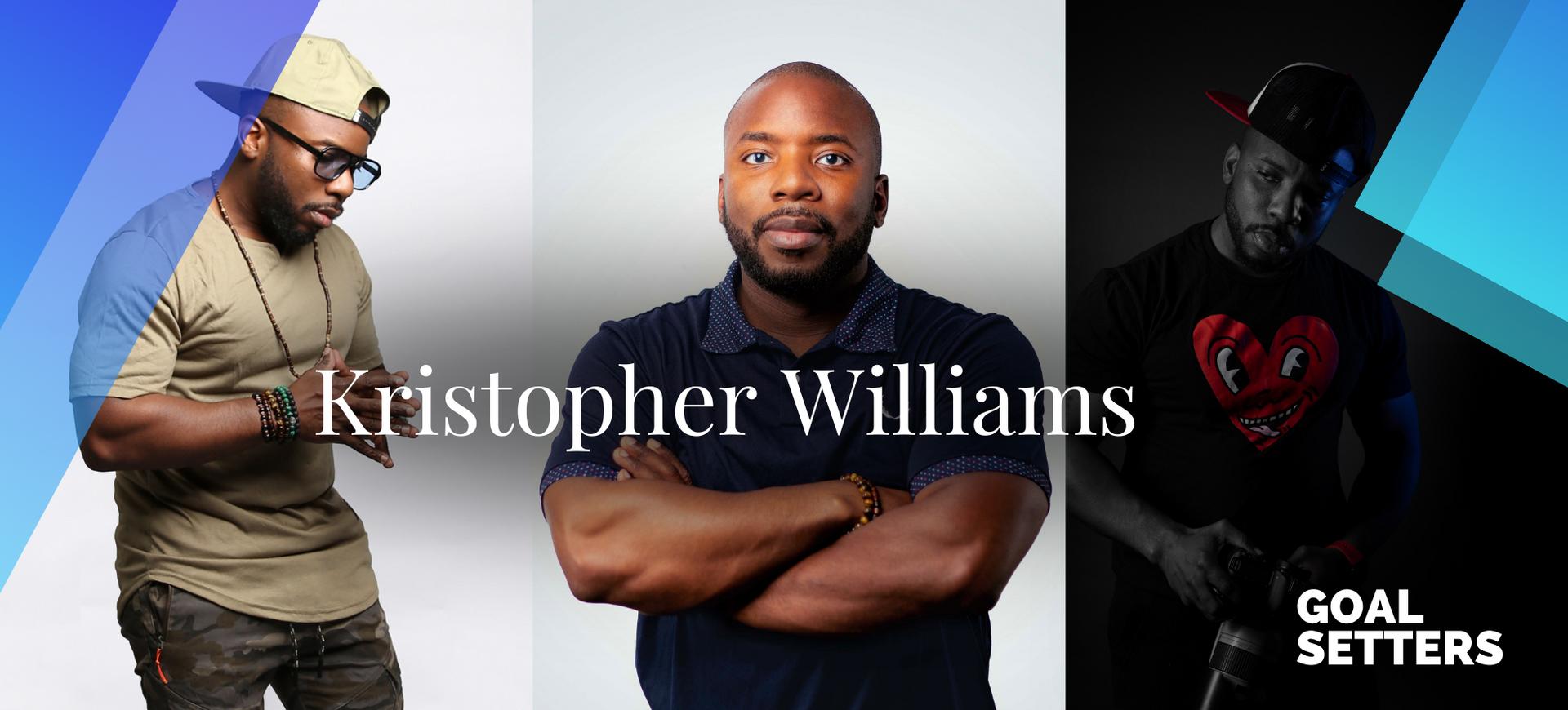How Travis Lamnek is transforming the health insurance industry through genuine connections, trust, and rock solid reputation.
Written By: GoalSetters International

The biggest challenges are reducing what I reference as “the trust cycle” and overcoming the stigma of “insurance salesman.” Why not be an upstanding person in the industry and let my reputation start rebuilding trust with some folks, while I start to mentor and coach other insurance professionals to do the same.
Travis Lamnek
Founder: Lucid Health Insurance
Can you tell us what type of business you run and how long you've been operating this business?
I have been operating the health insurance portion of my business for about 3 years, focusing on small businesses, entrepreneurs, 1099 contractors, individuals and families. I am a consultant and agent licensed in my resident state of Texas, along with several other states - including Arkansas, Florida, Indiana, North Carolina, Oklahoma, Ohio, Tennessee, and Utah.
Can you share with us some details about how you got started in the Health Insurance Industry?
While consulting with small businesses, client challenges were trending around employee attraction and retention. Benefits were a large missing component of what makes employees happy, and the more we looked into health insurance options. The brokers that responded to the small business clients were either so new to the industry that they didn’t know much or they just didn’t show they cared much about my clients. The agents that responded were typically trying to push a product that they had directly available, which were not usually a good fit for my clients. The more agents and brokers we talked to, the more disappointed my clients and I became with the level of knowledge, service and options that were readily available. Therefore, I pivoted - earned my insurance license and started providing some of these benefits directly.
The more I worked with people, the more it became obvious that they are expecting someone to “sell” them on a concept or specific plan instead of my approach - which is to work with them to understand their situation and determine the best solution to fit. The more I worked with self-employed and small businesses, the more I realized that they need a trusted partner to come alongside them and treat them like family.
Now, I flip the health insurance industry on it’s head by providing no cost consultations to everyone. These consultations find out what is needed and most important to the client, and then I use my industry expertise and vast partner network to put the best solution to fit their needs in place. Sometimes the best solution is through me directly and other times it is through a trusted partner or the marketplace. Either way, the client gets put in place what they need.. Sometimes the right plan for them is the one they already have. In such cases, they find peace of mind, and we make a plan to get together again during the next open enrollment period to re-evaluate.
Worst case scenario: Customer has peace of mind, and I earn credibility toward potential referrals to help more people.
If you've had some challenges and roadblocks along the way, Can you share with us what some of those challenges have been in regards to starting or running this business and how you overcame them?
The biggest challenges are reducing what I reference as “the trust cycle” and overcoming the stigma of “insurance salesman.”
Some products and services are either low cost or low impact, and therefore do not require much trust of the product or company providing the service. Health Insurance is definitely not in that category. For many families, this equates to a second mortgage or a luxury car payment. The client must either trust the content, the representative agent or both. By utilizing referrals - connect with potential clients from either their friends or family that I have helped or through some of my business partnerships that they already use and trust - the time from connect to trust is greatly reduced, therefore, shortening the sales cycle to a more manageable level.
The second challenge is overcoming the “insurance salesman” stigma. This stigma originated with those who historically took advantage of trusting souls - such as “snake-oil salesman” and “used-car salesmen” that were known for taking your money in an unfair exchange. The challenge here is that people really do need health coverage. Why not be an upstanding person in the industry and let my reputation start rebuilding trust with some folks, while I start to mentor and coach other insurance professionals to do the same. It’s all about mindset. Change your own, and make the world a better place.
Let's talk about the services you offer, who do you help, and how do you help?
My health insurance services begin with a quick introductory call of 5-10 minutes. During this time, we discuss the needs of the business, family or individual. This allows me to understand the important factors and can start quantifying potential solutions - which ones are available at the moment, what is possibly within budget and which will have the network to support preferred doctors, hospitals and specific treatments.
We conclude that discussion by setting a Zoom or in-person time at least a day or two away to go through specific options that will be a good fit.
Between the introduction and meeting, I will shop the different providers and sources to get specifics for each of the options and prioritize them based on what will be the best fit for the unique client situation.
During the in-person or Zoom meeting, I will present a few options to the client, explain how each one works, how they will address the specific needs of the client, and discuss what I refer to as the “full cost of ownership” for each. Most people believe the cost for health insurance is mostly the monthly premium, but that is only the cost to HAVE the plan. The cost to USE it is something completely different. The cost to HAVE plus the cost to USE is the full cost of ownership. This is the number that should make the most impact financially.
By focusing on ensuring the proper plan will cover what it needs to, and then evaluating further based on the finances, we can come to the solution that will be the best fit for the customer.
It is important to note that life events happen and circumstances change. What is a good fit for one point in your year or life may not be a fit in the near future. It is important that I stay connected with my clients to not only make sure they continue to have the best solution in place, but so that they are also getting the most benefit from their benefits.
How do you assess which type of insurance policy a client needs most? And what method do you use to ensure your client fully understands their policy?
The consultative approach helps me to understand medical needs, geographical needs, budgetary constraints, which providers are desired in-network, and more.
The meeting where we go through options addresses each of these needs on an itemized basis. Once a client chooses a plan, I walk them through the registration or application process (depending on the type of plan). Once the plan goes in-force (becomes active), then we have a third meeting that walks them through registering their accounts, and provides a tour of their online portals so they can access all the information, claims, billing, and more. Prior to this meeting, I provide a quick reference guide for the client records to be able to navigate the plans and portals with or without me. During this meetings, we also discuss where to find all the key and supplemental benefits. I call this third meeting the “onboarding” session.
At the conclusion of the onboarding session, the client has all the pertinent information to get the most out of their benefits, as well as where to go to answer any questions. They are also reminded of my phone and email and encouraged to reach out to me with any questions or concerns, as I am here to help and guide, not to “sell” anything!
As a business consultant, what are your thoughts on using CRM systems? Are they vital for business growth and improvements?
Yes, CRM systems are vital for business growth and improvement. Every business has some sort of Customer Resource Management process. Some are paper and pen, and others are detailed software systems. The more clients and information you want to possess, the more you will need to rely on an integrated system to store, track, retrieve, and share (with your colleagues or teammates) information pertinent to the clients and opportunities.
In my business, I not only track potential clients, but I also track insurance partners and referral partners. I consider both of these an extension of my own business. Anything they do (or do not do) is a direct reflection on me and my business. Client satisfaction is a tremendous metric for me to measure, although it is typically qualitative, not quantitative.
With all that you've accomplished so far, did setting goals contribute to your success so far?
Yes, setting goals was important to get from where I started to where we are now. It is not about working harder, goals allow you to work smarter and focus on what will make the most impact.
Other health agents tell me that I spend too much time on “customer service” and my “onboarding” services. I have made those more efficient over time, but they are a huge part of my company values, and I am unwilling to remove them.
My goal is to help a specific amount of families - which is counted through both individual, family, and business accounts. Too few and I feel complacent, too many makes me lose focus and lower my customer service.
As this number continues to grow, I bring in more like-minded partners to help more families.
Retention is another key metric.
There are quite a few objectives with metrics that I track to achieve these goals, but new clients and retention are my primary goals.
Here at GoalSetters, we like to say " A Goal Without A Plan is Just A Wish", what's your advice on the best way that people can go about accomplishing the goals that they set?
Sales is another way to describe “new clients” that I referenced above, and there is typically a lot of chatter regarding the “sales funnel.” The sales funnel that I subscribe to is the AIDA model: Awareness -> Interest -> Decision -> Action.
However, most pay homage to the idea, yet omit the journey. They try to take a potential customer from Awareness to the sale (Action) in one fell swoop. For my business, this goes back to the trust factor. It also applies to one of my company core values: the Platinum Rule: treat others the way they want to be treated.
I have objectives in place that help move people to the next stage in this journey, not directly to the end, as they are not ready for that. We move at their pace, while I provide the necessary input and support at each step.
As I mentioned, I consider myself a consultant, not a sales person. It’s never about the “sales game,” it’s about making a difference in people’s lives - with their health and their finances. Therefore, the tagline for the business is “Protecting your health without sacrificing your wealth.”
Personally, I track metrics weekly, and make adjustments to goals and objectives on a quarterly basis. This allows me to make adjustments as needed to achieve my goals.
In closing, for those that may require your services or may need mentorship, how can they connect with you?
I am very active on social media platforms - especially LinkedIn and Facebook, and growing on Alignable. This is a great way to follow me for education, tips and tricks of the trade, as well as connecting with me for specific guidance.
My health insurance consulting is complementary (free of charge). I want to make sure people do not end up as a statistic. For example, 67% of all bankruptcies are caused by medical expenses. However, it is even more startling to me that in almost 75% of those cases, the impacted person had health insurance! How do that many people go bankrupt because of medical expenses when they had something in place?!!
Further research has shown me that they either did not have sufficient coverage or they did not know how to use what they had properly. Therefore, I am on a mission to help others to NOT become a statistic.
Please reach out to me on my website (https://www.lucidhealthinsurance.com), on social media, via email or even by telephone if you or someone you know needs protection or has already found themselves in a bind. There may still be solutions available to help.
Remember the Platinum Rule: treat others the way they want to be treated.
And my rule: Friends don’t let friends shop online for health insurance.
Click Any Of The Icons Below To Share This Story To Any Platform!


